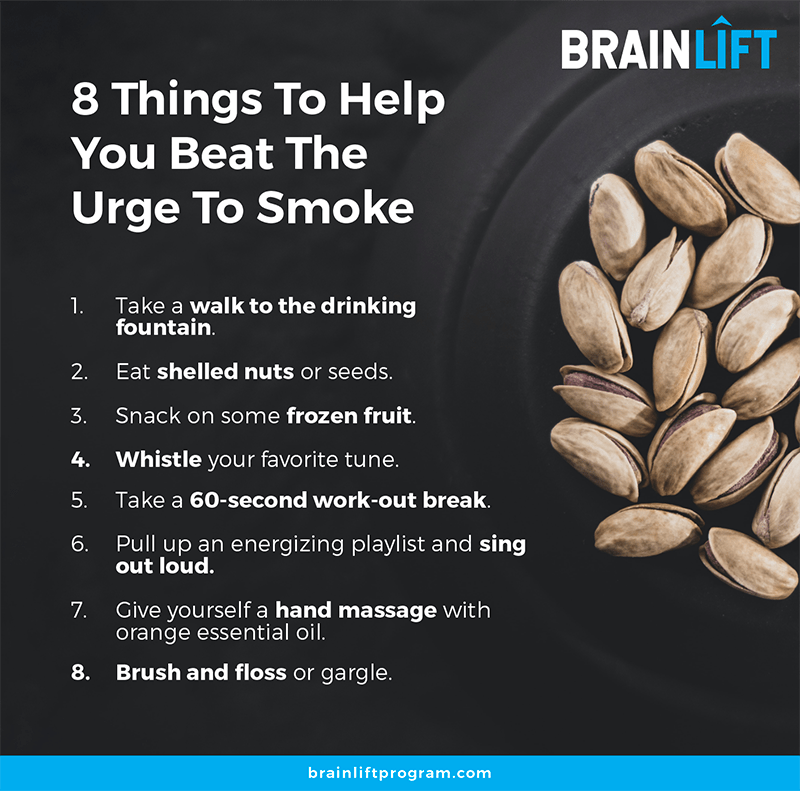SUMMARY:
-
Smoking increases the risk of Alzheimer’s disease by 40%.
-
Smoking is a major risk factor for several subtypes of Alzheimer’s because it contributes to vascular problems and increases inflammation and toxic load.
-
Research shows that stopping smoking can add years back to your life expectancy.
Along with all the other major risks of smoking, there is also strong evidence to suggest that smoking may contribute to your risk of developing Alzheimer’s disease. The consequences of smoking are widespread, harming nearly every organ in your body, including your brain.
Current smokers, compared with those who have never smoked, have shown a 40% increase in the risk of developing Alzheimer’s disease.
Some researchers estimate that it’s possible that up to 14% of dementia cases worldwide may be tied directly to smoking. In those with dementia, smoking has also been found to independently increase mortality risk. In a meta-analysis of about 235,000 dementia patients, smoking was one of the risk factors associated with a nearly 40% increase in the risk of death.
Smoking Starves Your Brain
Smoking increases the risk of vascular problems as it can cause strokes from either blood clots or small areas of bleeding in your brain – these are major risk factors that contribute to the vascular subtype of Alzheimer’s disease, and there’s a direct correlation between problems with the vascular system and the disease.
The vascular system, also known as the circulatory system, is made up of the vessels that carry blood and lymph through your body. The brain gets around 20% of the body’s oxygen supply from the blood. This means anything blocking the brain from getting its oxygen-rich blood supply is ultimately starving your brain cells of essential nutrients they need to resist damage.
Smoking Increases Inflammatory Alzheimer’s
Additionally, toxins found in cigarette smoke increase oxidative stress and inflammatory responses in our bodies, which has also been linked to the development of the toxic subtype of Alzheimer’s disease. Oxidative stress biomarkers have been found in higher numbers in smokers, indicating brain tissue damage. Oxidative stress occurs when there is an imbalance between toxic molecules in our cells and the antioxidants needed to remove them.
One large multiethnic cohort showed substantial risks of heavy smoking in midlife, as it was associated with a greater than 100% increase in the occurrence of dementia, Alzheimer’s disease, or vascular dementia more than 2 decades later. These results show that our brains are not immune to the long-term consequences of heavy smoking.
Stop Smoking Now to Decrease Your Risk of Alzheimer’s
On a positive note, it has been shown that when we stop smoking our risk can be reduced in a relatively short amount of time – so it’s never too late to cultivate a healthier lifestyle. A 2020 study of over 10,000 people, between the ages of 52-75 explored the relationship between smoking cessation and dementia. This study found that those who had abstained from smoking for at least nine years carried the same risk of dementia as those who have never smoked!
A 50 year-long study of British doctors who stopped smoking at age 60, 50, 40, or 30 respectively, found they gained 3, 6, 9, or 10 years of life expectancy. Stopping smoking and keeping other risk factors within your control in check, especially in middle age, can greatly reduce your risk of Alzheimer’s disease. It’s never too late to adopt healthier lifestyle changes (like not smoking), but research has found that the earlier you do it, the greater your benefits!
Beat The Urge To Smoke
- Take a walk to the drinking fountain or grab a glass of water.
- Eat shelled nuts or seeds like pistachios or sunflower seeds.
- Change the temperature by snacking on some frozen fruit (berries or grapes are some favorites).
- Whistle your favorite tune (not recommended if you’re in a cubicle!).
- Take a 60-second work-out break. Lunges, squats, or even jumping jacks will get your heart racing while erasing your craving (see what we did there?).
- Pull up an energizing playlist and sing out loud (also not recommended in the office!)
- Give yourself a deep-tissue hand massage with your favorite carrier oil (we like olive oil) and a drop of peppermint or wild orange essential oil. Creating a sensory experience is a great way to shift your mindset.
- Brush and floss your teeth, or gargle some (non-toxic) mouthwash.

REFERENCES:
-
https://apps.who.int/iris/bitstream/handle/10665/128041/WHO_NMH_PND_CIC_TKS_14.1_eng.pdf;jsessionid=298266DEA7FCC8FDABFCDF747C90BF6B?sequence=1
-
https://www.cdc.gov/tobacco/data_statistics/sgr/50th-anniversary/index.htm
-
https://pubmed.ncbi.nlm.nih.gov/25763939/
-
https://pubmed.ncbi.nlm.nih.gov/26782850/
-
https://apps.who.int/iris/bitstream/handle/10665/128041/WHO_NMH_PND_CIC_TKS_14.1_eng.pdf;jsessionid=298266DEA7FCC8FDABFCDF747C90BF6B?sequence=1
-
https://www.hopkinsmedicine.org/health/conditions-and-diseases/overview-of-the-vascular-system
-
https://www.ncbi.nlm.nih.gov/pmc/articles/PMC3078506/
-
https://pubmed.ncbi.nlm.nih.gov/25037769/
-
https://www.ncbi.nlm.nih.gov/pmc/articles/PMC3647614/
-
https://www.alzheimers.org.uk/sites/default/files/pdf/factsheet_risk_factors_for_dementia.pdf
-
https://pubmed.ncbi.nlm.nih.gov/20975015/
-
https://pubmed.ncbi.nlm.nih.gov/31675113/
-
https://www.ncbi.nlm.nih.gov/pmc/articles/PMC437139/


